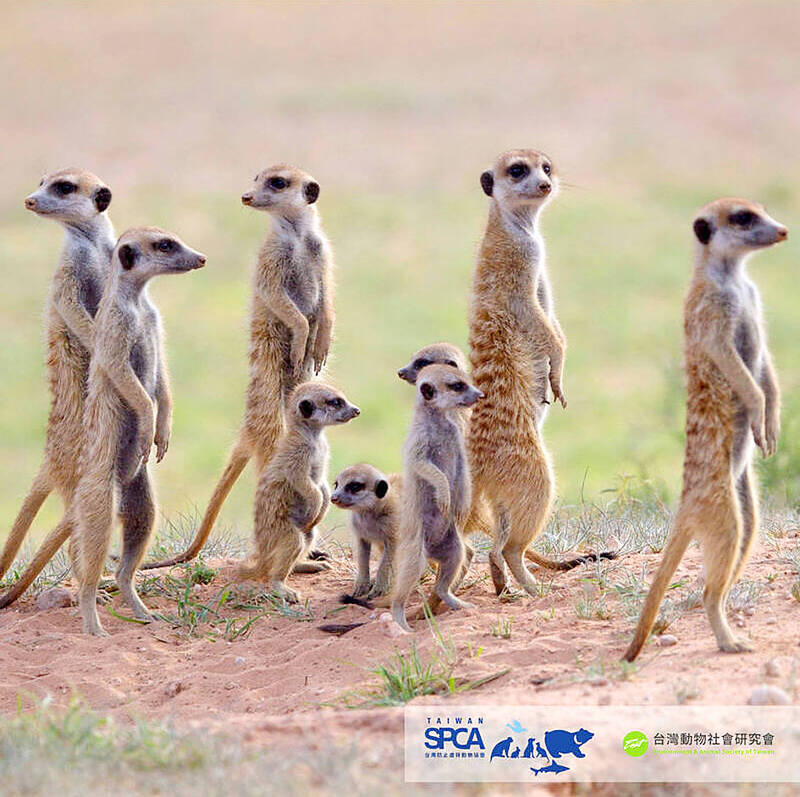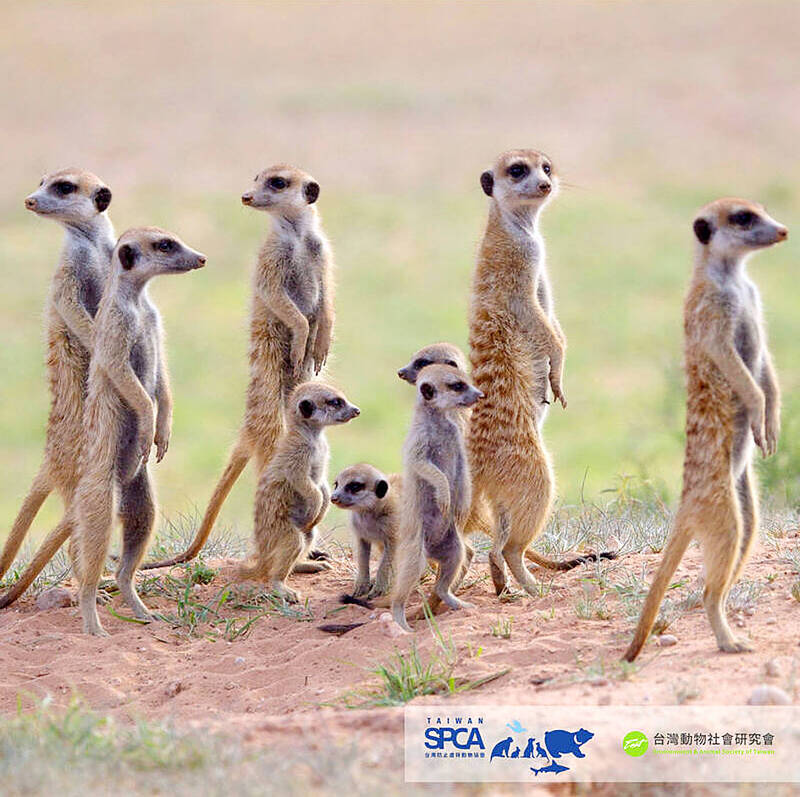‘GRAY’:
Meerkats are social animals and those that are raised alone can be aggressive and self-harm, posing a danger to themselves and their owners, the groups said
By Yang Yuan-ting
and Sam Garcia /
Staff reporter, with staff writer
Animal protection groups yesterday urged the Ministry of Agriculture to ban keeping meerkats as pets, as they do not fare well under private ownership and could threaten the environment.
The groups were responding to the ministry’s proposal to classify meerkats as a “gray” animal in its suggested categorization of animals into black, white and gray lists.
The classification would mean they could be kept as pets once regulations on breeding, sales and ownership are established.

Photo courtesy of the Taiwan Society for the Prevention of Cruelty to Animals and Environment and Animal Society of Taiwan
Although some people keep meerkats as pets, it is hard to satisfy their psychological and physiological needs in captivity, the Taiwan Society for the Prevention of Cruelty to Animals and Environment and the Animal Society of Taiwan said in a joint statement.
Meerkats are social animals that usually live in groups of 20 to 30, each fulfilling their own role in the group, the statement said, adding that it is their core instinct to dig.
Meerkats that are raised alone can be aggressive and self-harm, posing a danger to themselves and their owners, it said.
In addition, if meerkats escape or are abandoned, they could seriously harm the environment, it said.
Many places around the world strictly prohibit private ownership of meerkats, including Belgium, the Netherlands, Italy, Portugal and many US states, the groups said.
As Taiwan lacks clear regulations on owning meerkats, allowing legal ownership could further stimulate the market and increase cases of improper care, they said.
The government cannot fully supervise private ownership, and if pet meerkats end up in the wild, the subsequent costs would be unimaginable, they said.
Banning private ownership is necessary to prevent the problem from escalating, they added.
Before the ban is instated, the ministry should formulate regulations to ensure they are implemented and protect the rights of current owners, the groups said.
During the transition period, owners should report their meerkats’ numbers and health, accept government supervision, and be prohibited from breeding or selling the animals, they said.
The ministry should also bolster border controls and prevent illegal trade so that new meerkats do not enter the country, they added.
The groups called for better education about the needs of wild animals and a focus on ecological responsibility rather than animals’ cute appearances.

